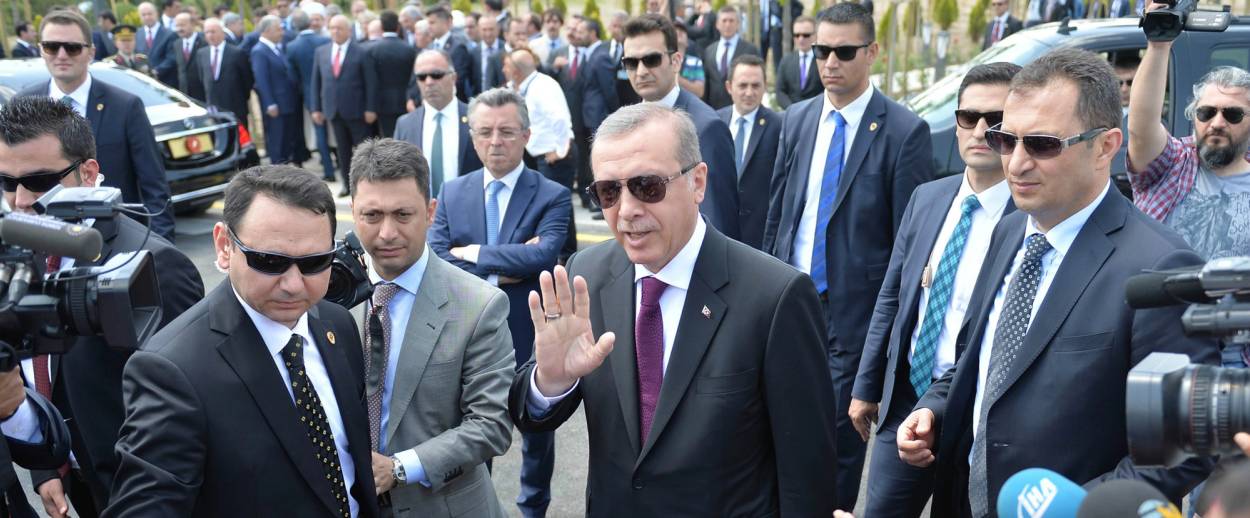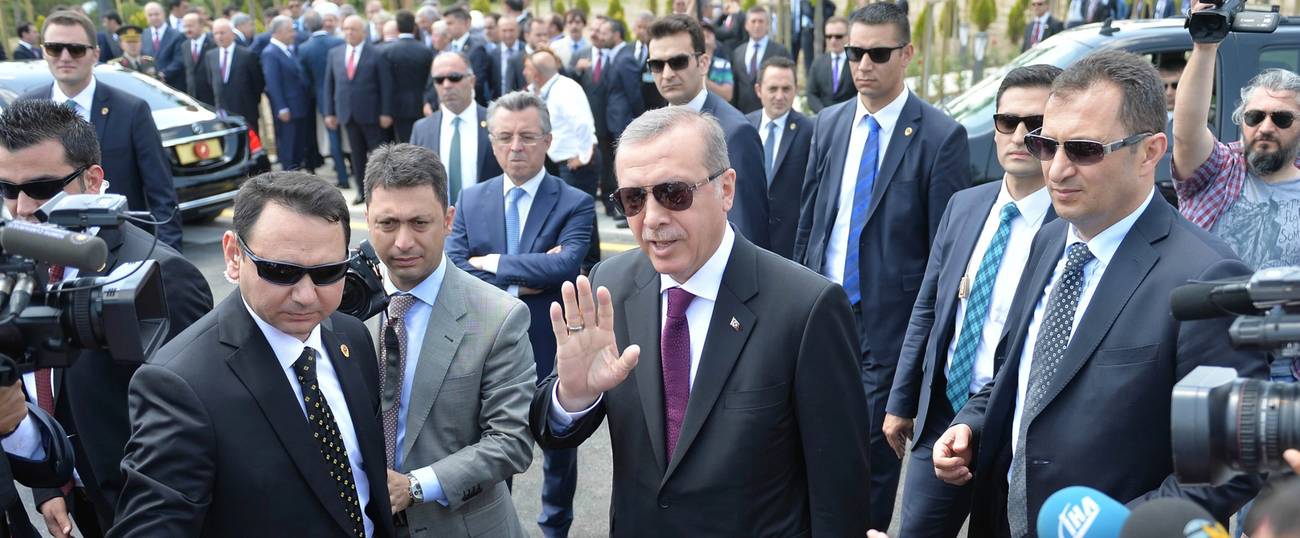Why Turkey Needed To Reconcile Its Ties With Israel
Turkish Prime Minister Binali Yildirim and Benjamin Netanyahu announced the details of a deal on Monday, restoring diplomatic ties between the two countries




Israel and Turkey are restoring diplomatic relations, roughly six years after an Israeli raid on a Gaza-bound flotilla killed nine Turkish citizens, and three years after Israeli Prime Minister Benjamin Netanyahu apologized for that raid at President Barack Obama’s urging. The two countries, whose militaries used to hold joint exercises and conducted some $2 billion in yearly bilateral trade in the mid-2000s, will once again enjoy a fully normalized relationship.
Israeli diplomats are likely satisfied with the deal’s terms, which were negotiated and announced in December, before being finalized earlier today. Although Israel will pay $20 million in compensation to the families of the victims of the May 2010 raid on the Mavi Marmara, Turkey is dropping any criminal charges against soldiers who had participated in the operation. Reccip Tayyip Erdogan, Turkey’s mercurial and increasingly authoritarian leader, had demanded that Israel lift its stringent trade and travel restrictions on the Hamas-controlled Gaza Strip; even though Turkey will provide increased humanitarian aid and build a hospital under the agreement, most of the Israeli restrictions will nevertheless remain in place. Turkey has already stopped vetoing Israeli participation in NATO activities, and reportedly pledged that Hamas officials would no longer be able to plan or coordinate attacks on Israeli territory from Turkey. Although Erdogan is ideologically Islamist and emerged as Hamas’s top state advocate and sponsor, Hamas is not thrilled with how the normalization process has played out.
Even before storming offstage during a panel discussion with then-Israeli president Shimon Perez during the World Economic Forum in early 2009, Ergodan had used his opposition to Israel as a means of bolstering Turkey’s status in the Middle East and the greater Muslim world. Now, he’s willing to go back on a core demand in order to restore relations with a country whose demonization seemed central to Erdogan’s political identity.
So what changed? The Jerusalem Post has a useful rundown of what’s happened in the six years since Israel’s relationship with Turkey was put on hold: In short, Israeli tourism in Turkey has plunged, and the Jewish state has developed closer ties with alternative regional security partners like Romania.
The best explanation for today’s breakthrough comes from looking to the Turkish side. Since 2010, Turkey has seen the cratering of its foreign policy and its broader regional standing. The failure and eventual removal of Egypt’s short-lived, Turkish-supported, Muslim Brotherhood-led government reduced some of Ankara’s influence and appeal. But the defining event in Turkish regional policy since the Mavi Marmara raid has been the devastating civil war in neighboring Syria.
The Syrian conflagration has caused nothing but problems for Turkey, which has supported the removal of president Bashar al-Assad since the conflict’s outset. It isn’t just Assad’s survival or the presence of some 2.7 million Syrian refugees that’s stymied Ankara: ISIS has carried out repeated attacks inside Turkey while opposing stances towards the Assad regime have threatened to bring Ankara and Russia into conflict. Turkey has seen its military and political influence in northern Turkey reduced as ISIS and then Syrian Kurdish fighters took over nearly the entirety of the Syrian-Turkish border. To make matters even more complicated, the Syrian Kurds are generally allied with the PKK, the Kurdish militant faction that’s fueling a renewed insurgency in eastern Turkey.
Turkey is far weaker, less stable, and more vulnerable than it was the night the Shayetet 13 commandos fast-roped onto the deck of the Mavi Marmara. Over the past six years, Turkey has gone from being a soft-and-hard power-leader at peace with a range of difficult neighbors to a country just hoping to steer itself through a period of regional chaos and incipient civil war. And the increasingly autocratic Erdogan, who effectively controls his country’s major media, has a ready-made narrative to sell a dramatic shift in policy, pinning the previous six years of foreign policy failures on longtime foreign minister and former prime minster Ahmed Davutoglu, who Erdogan fired this past May.
“The way this will be framed domestically in Turkey that Erdogan is a great, wise strategic thinker and that all of the problems are actually Davutoglu’s fault,” said Atlantic Council resident senior fellow Aaron Stein, who noted that the former Prime Minister had actually been intimately involved in the effort to repair Turkey’s relations with Israel. Dramatic foreign policy moves could also help reassure a Turkish public increasingly concerned with the country’s collapsing internal security. “Within the country’s there’s considerable unease about Turkey’s position, especially inside Syria. It’s gotten worse because of the PKK, the inflow of refugees, and Russia,” Stein explained. “The time is right domestically for a foreign policy reset.”
Israel is only one aspect of that reset—the Turkish foreign minister’s trip to Russia later this week, and Erdogan’s expression of regret for Turkey’s December 2015 downing of a Russian fighter jet that strayed into Turkish airspace earlier today, are far more consequential developments.
Even so, the Turkish deal extends Israel’s current winning streak in the foreign policy realm. Israel enjoys warming relations with Turkey, Russia, Egypt, India and possibly the Gulf States, on top of a close historic partnership with both the EU and the U.S. Political violence within Israel has waned, and for the time being, international pressure on Israel to enter into negotiations with the Palestinians or to make uniliaterial concessions to the Palestinian Authoity and Hamas is eminently manageable, at least from Israel’s perspective. The violence throughout the Middle East, and any dysfunction suggested by the recent Israeli cabinet reshuffle belie a reality that’s surprisingly easy to ignore: As far a regional standing and strategic depth go, Israel’s hardly ever had it better than this.
Previous: Israel and Turkey Restore Diplomatic Relations
Previous: Barack Obama’s Turkish Fruitcake
Armin Rosen is a staff writer for Tablet Magazine.